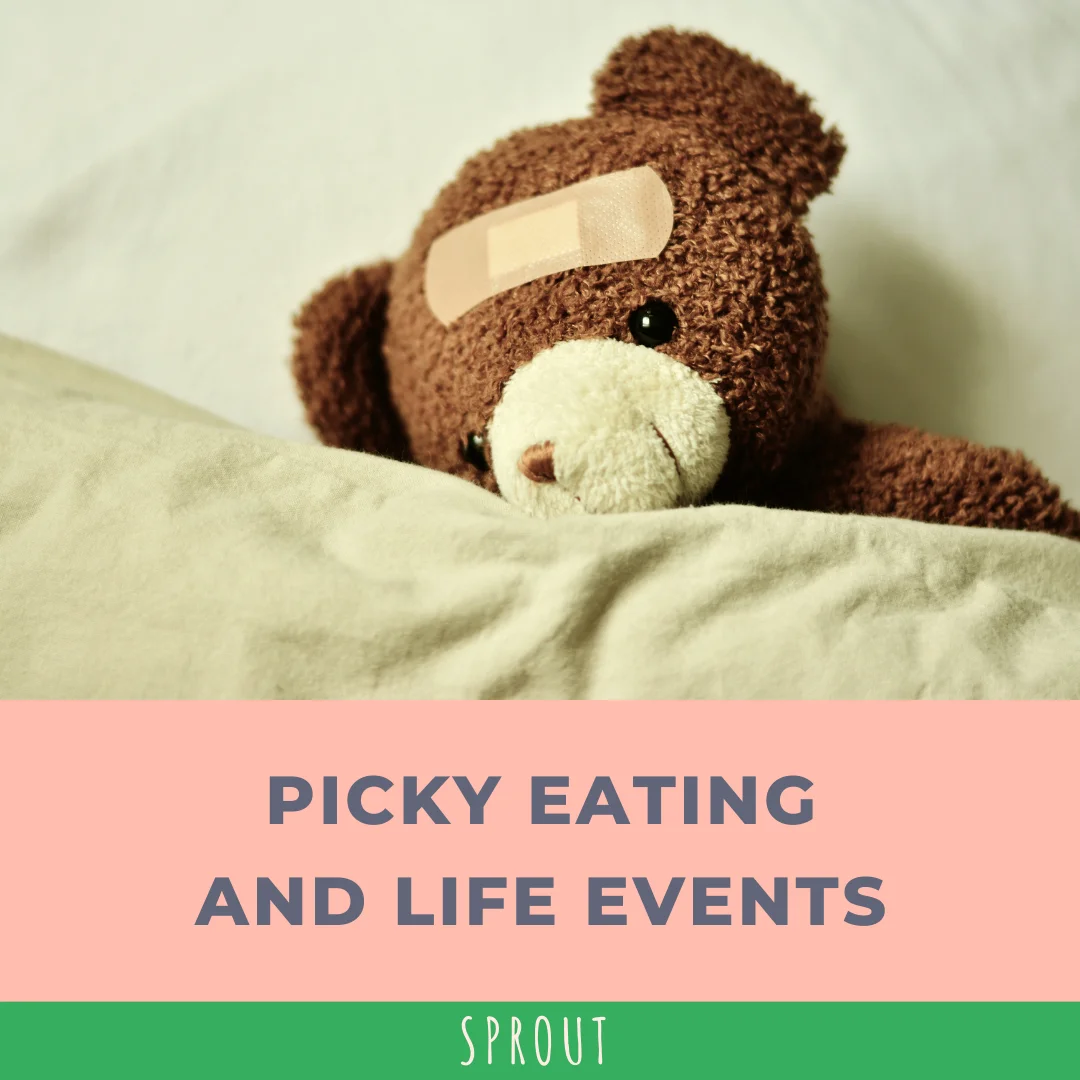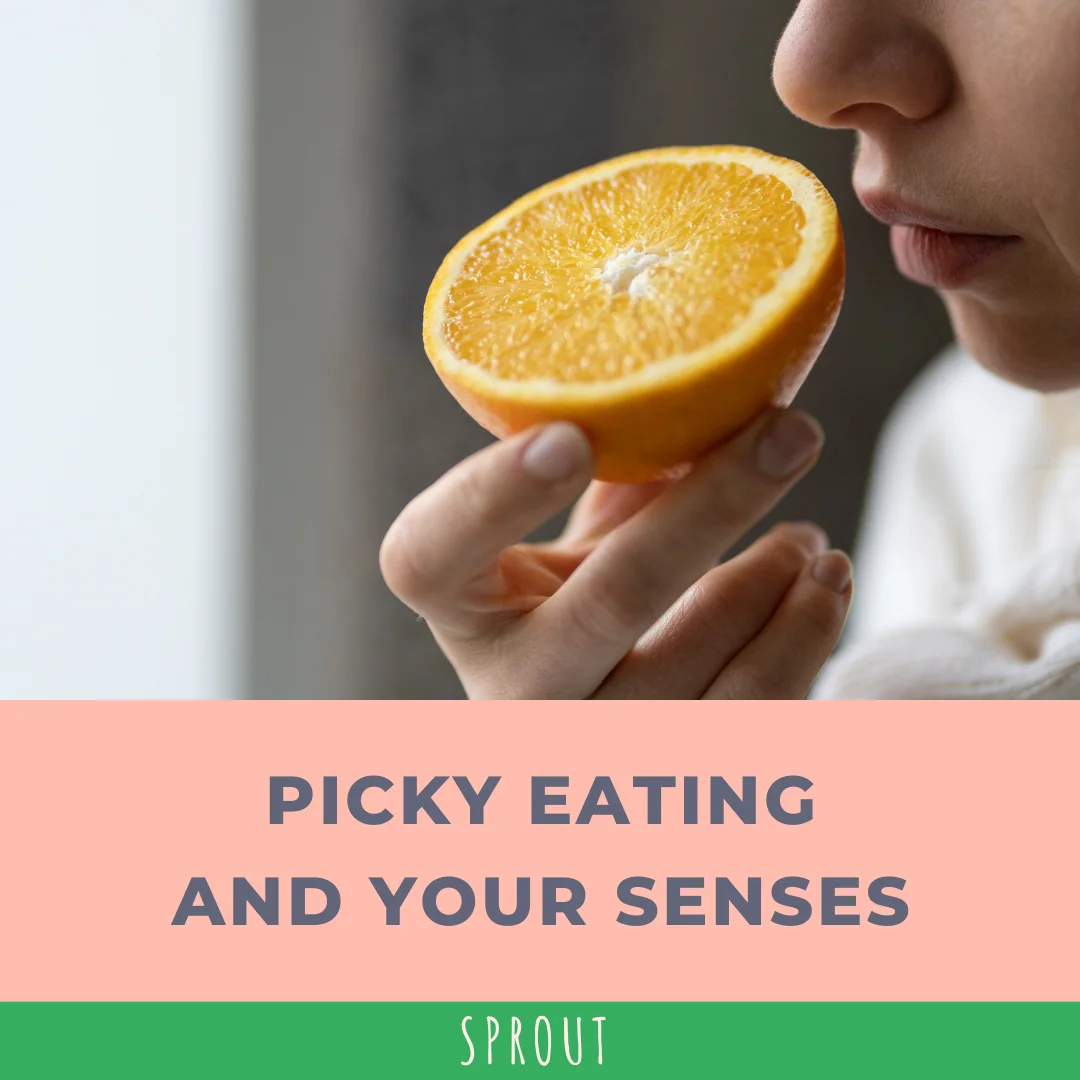Is it my fault my kid is a picky eater?
If you've ever caught yourself staring at your child's plate of untouched broccoli and wondered, "Did I cause my child's fussy eating?" – let me just give you a virtual high-five and assure you, you're not alone in this wild parenting ride. We’re very familiar with those thoughts spinning around your mind, like whether your eating habits have made your little one a picky eater or if you introduced solid foods in a way that triggered this culinary rebellion. Relax, you're in good company!
The truth is, it's super common to think that parents cause eating disorders. We've all had that moment where we've questioned whether our dinner-time rituals have contributed to the peas-on-the-ceiling situation. But guess what? It's time to let go of that guilt. Let's look at where some of these beliefs come from, and uncover the truth behind the “fussy eating blame game”.
Where the belief that “I caused my child’s picky eating” comes from
Let's rewind the clock a bit and dig into where this whole "I caused my child's fussy eating" notion might have come from. Understanding the source of this belief can help you let go of it for good.
Historic ideas: Back in the day, historic perspectives often pointed fingers at parents for their kids' eating quirks, even when the evidence cupboard was pretty bare. A lack of understanding about the factors that actually contribute to eating difficulties even led medical professionals and researchers to suspect parents and the home environment as the cause. Unfortunately, these views are still present today - and many parents feel blamed and dismissed after a doctor or paediatrician visit when they’re told “just let them get hungry enough” or “stop giving them the foods they like…they’ll eat eventually” (terrible advice for most picky eaters by the way!!)
Out-of-date thinking:This is coupled with the out-of-date idea that fussy eating was just “bad behaviour” and something parents should be disciplining. Yep, we’ve all heard that tune. But let's be real – if broccoli tasted like cardboard and cauliflower like crayons to you, you might pull a few faces too! Fussy eating is not defiance; it’s actually a sign that eating may be difficult for your little one. They need compassion and understanding - not punishments!
Judgement from others:And let’s not forget the judgement from other parents, the societal pressure, and the endless scroll of perfect mealtime pictures on social media that fuel parenting guilt. But guess what? Those beautifully crafted rainbow plates are often followed by hidden tantrums and secret trading of peas under the table.
So there you have it, folks – a mishmash of history, misinterpretations, and societal standards, creating the perfect recipe for "Did I cause it?" doubts. But let’s recognise that many of these sources of guilt are not coming from you - they’re coming from the outside world - and fussy eating is not something you’ve caused!!
What does the research tell us?
You may be surprised (and relieved!) to know that parents’ “I’ve caused this” belief is something psychology researchers have actually studied!
In an interview study with 20 parents of school-aged children - those who had experienced fussy eating as a problem were more likely to recognise child-related reasons as causes for fussy eating, like personality, genetics and sensory preferences. But even when parents recognised these reasons, they still had a tendency to blame themselves. Where might this self-blame come from?
Well, parents who experienced fussy eating as less of a problem were more likely to believe they had done a good job and attributed fussy eating in other families to bad parenting. So, there we have it - research evidence that judgement from other parents is real and it’s not just your imagination! In fact - these parents may have been lucky with the genetic lottery their child was born with and have no idea about the turmoil other families have been through!
Attribution theory shows us that the perceived cause of an event impacts the way we feel and respond to a situation. While you’re caught up in thinking you’ve caused your child’s fussy eating - you’re likely to experience more guilt, anxiety, and keep trying strategies to “fix” or “amend” the situation you feel you’ve created - which may just add unnecessary pressure on you and on your child’s eating.
On the other hand, when you can move away from feelings of guilt and understand the real reasons behind fussy eating - you can approach your child’s eating neutrally, more easily accept where they are at with their eating skills, and find the coping strategies that suit your individual child’s needs.
So, here’s the scoop
Feeling like you’re the cause of your child’s fussy eating is more common than you’d think, but many of these doubts are planted by external sources rather than fussy eating being down to your own parenting. It’s like suddenly realising that not every rainy day is your fault!
Research findings reveal that believing in the “I caused it” saga can shape how you handle your child’s eating - leading to more negative feelings and possibly even more pressure around your child’s eating! This is why understanding the real reasons behind your child’s fussy eating is so important.
While you did not cause your child’s eating to be the way it is - you are your child’s superhero and you play a starring role in guiding your mini-food critic towards new horizons.
Read about ways of overcoming fussy-eating guilt. Understand your child’s unique picky profile .
References:
- Rubio, B., & Rigal, N. (2017). Parental concerns and attributions of food pickiness and its consequences for the parent–child relationship: A qualitative analysis. Journal of Child Health Care, 21(4), 404-414. https://doi.org/10.1177/1367493517725832
- Russell, C. G., & Worsley, A. (2013). Why don’t they like that? And can I do anything about it? The nature and correlates of parents’ attributions and self-efficacy beliefs about preschool children’s food preferences. Appetite, 66, 34–43. https://doi.org/10.1016/J.APPET.2013.02.020
- Weiner, B. (1985). An attributional theory of achievement motivation and emotion. Psychological Review, 92(4), 548–573. https://doi.org/10.1037/0033- 295X.92.4.548
- Wolstenholme, H., Kelly, C., Hennessy, M., & Heary, C. (2020). Childhood fussy/picky eating behaviours: A systematic review and synthesis of qualitative studies. International Journal of Behavioral Nutrition and Physical Activity , 17(1), 1-22.
- Wolstenholme, H. (2020). A qualitative investigation of family perceptions, experiences and management of childhood fussy eating behaviours (Doctoral dissertation, NUI Galway).

